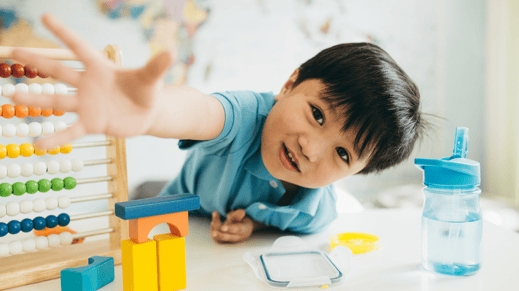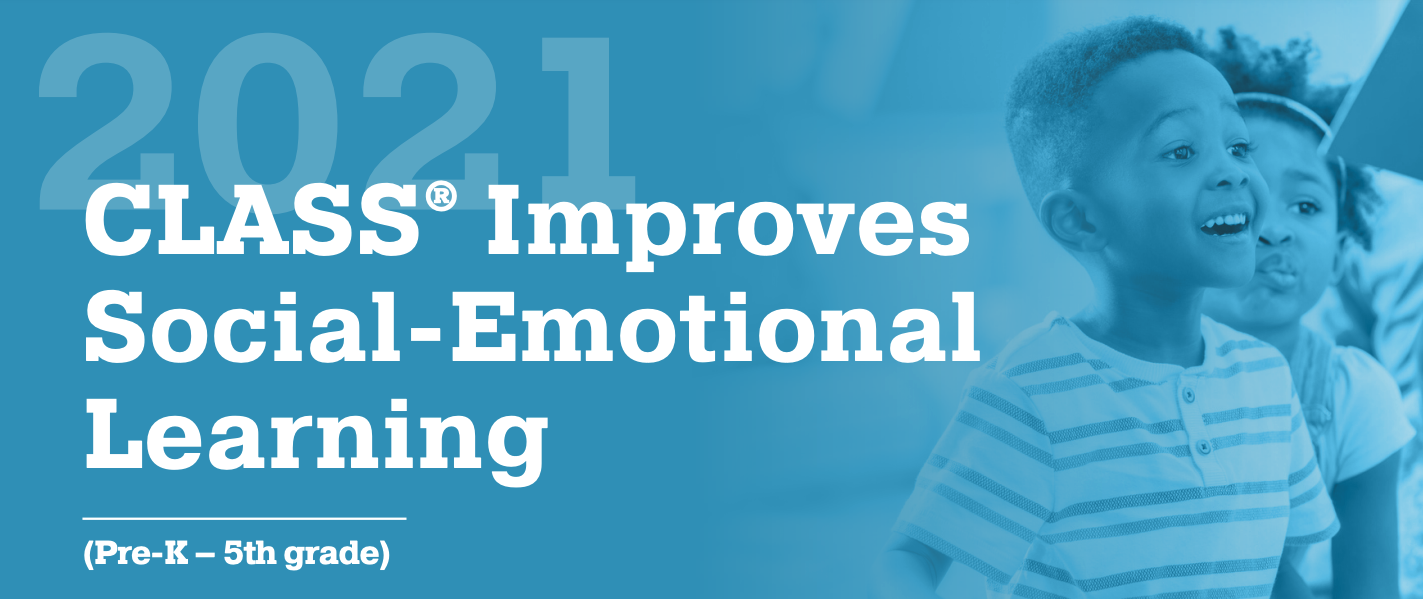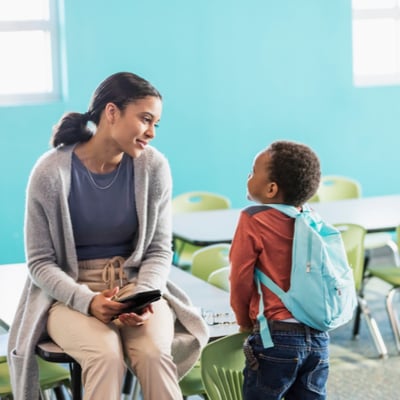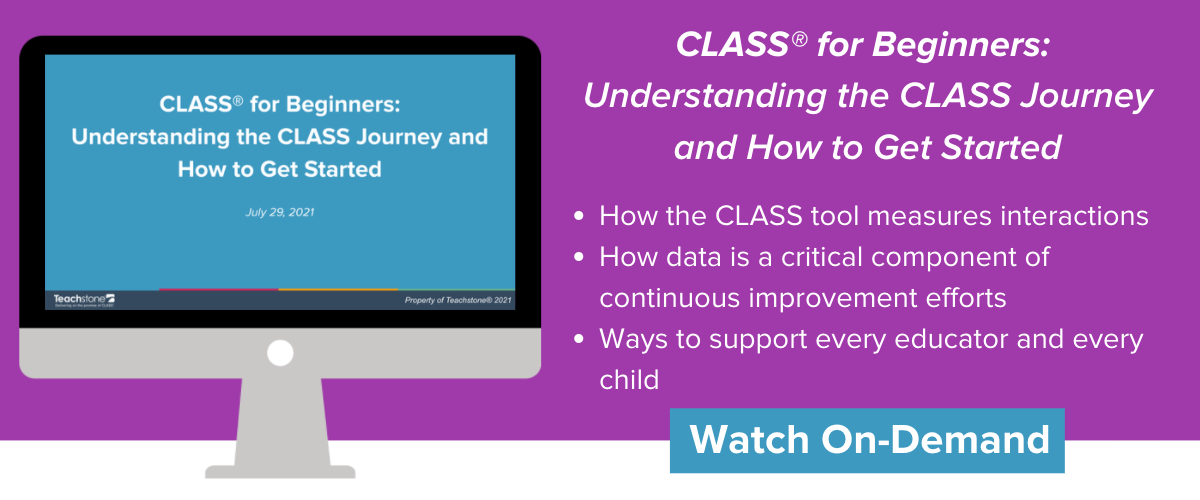
Social emotional learning (SEL) is a critical component of school readiness and later academic and social success. Did you know that high-quality interactions play an essential role in supporting children’s SEL learning? Our new brief breaks down the research behind the connections between teacher-child interactions and important social emotional skills.
What is SEL?
Social-emotional learning, or SEL, is a description used to describe children’s ability to understand and be in control of their emotions. This includes actions like feeling empathy, having a sense of identity, building relationships with friends and family, and having flexible thinking.
The SEL skills that we build as children become the groundwork for success later in life. Emotional regulation, stress management, and relationship-building are things that adults use in everyday work and life.
So, it’s not surprising that meaningful interactions support SEL skills in the classroom, and in long-term outcomes. Below are the five ways in which studies show that high-quality interactions, as measured by the CLASS® tool, support healthy development of SEL in children. 

Finding 1: In Classrooms with Higher Emotional Support, Children Show Increased Social Skills and Decreased Problem Behaviors
Emotional Support interactions help children feel more safe, emotionally secure, and open to new experiences. Some ways in which teachers demonstrate these skills by using a warm, calm voice, responding to children’s emotional needs, and giving children the opportunity to make their own choices.
One study that focused specifically on preschoolers, showed that those who experience warm and responsive interactions in the fall, had more positive social behavior in the spring. And another study of early elementary school children, showed that those who experienced higher Emotional Support interactions, performed better on tests of social skills and showed decreased problem behavior.
Finding 2: In Classrooms with Higher Classroom Organization, Children Develop Better Social-Emotional Skills
Classroom Organization categorizes interactions that teachers use to guide children’s behavior, maximize learning opportunities throughout the day, and offer different resources and materials for children to explore.
In a large-scale study of Head Start classrooms, children who experienced more effective support for behavior and more engaging activities demonstrated increased social skills. And another study showed that children engaged in less disruptive play at the end of the school year when Classroom Organization was high.
These findings are consistent in other age groups and settings as well. There have been additional studies in kindergarten and first grade that show a correlation between high-quality Classroom Organization interactions and children showing stronger self-control.
Finding 3: Classrooms with Higher Instructional Support Promote Children’s Social and Emotional Skills
Instructional Support interactions are those that promote higher-order thinking, like analysis and prediction. Teachers with high Instructional Support interactions are often asking open-ended questions, incorporating language development throughout the day, and help children think about how the world works.
One study showed that preschool children with high-quality Instructional Support interactions, demonstrated fewer behavioral problems and had closer relationships with their teachers. Another three studies showed that children in these classrooms also had higher executive function skills.
Finding 4: Dual-Language Learners’ and Children with Disabilities Appear To Benefit from More Effective Interactions Across CLASS Domains
While more research is recommended to better understand the direct outcomes from high-quality interactions with CLASS in Dual Language Learners (DLLs) and children with disabilities, the early findings are promising. Two studies find that CLASS has similar predictive validity for dual language-learners (DLL) as it does for children who speak one language. And, one study shows that for preschool children with disabilities, higher levels of Instructional Support were associated with increased social competence.
Finding 5: High-Quality Interactions Are Associated with Benefits Over Time
When children experienced higher levels of quality interactions in pre-K, they demonstrated better social skills and fewer behavior problems in kindergarten and first grade. Children in classrooms with higher Classroom Organization in kindergarten also showed higher levels of behavioral engagement in both kindergarten and first grade.
All of this research is a reminder of how important teacher-child interactions are, and how everyday moments can leave a lasting impact on a child’s life.

If you want to learn more about how the CLASS tool measures interactions, how data is a critical component of continuous improvement efforts, and ways to support every educator and every child, you may want to explore our CLASS for Beginners webinar. Listen to this on-demand recording to get a high-level overview of how to build your culture of continuous learning in your program.

